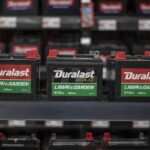Purchasing a car is a significant financial decision, and understanding your payment options is crucial for a smooth transaction. A common question that arises when finalizing a car purchase is, “Do Car Dealerships Take Checks?” The answer isn’t always straightforward and can depend on several factors. This article will delve into whether car dealerships accept checks, the types of checks they might take, and other payment methods available to car buyers.
Understanding Payment Methods at Car Dealerships
Car dealerships typically accommodate various payment methods to make the purchase process convenient for customers. However, not all forms of payment are universally accepted, and policies can vary between dealerships. It’s always wise to clarify acceptable payment methods with the dealership beforehand to avoid any last-minute complications.
Checks: Are They Accepted?
Yes, in many instances, car dealerships do accept checks, but with certain stipulations. The type of check and the amount you are paying often play a role in whether a dealership will accept a check as payment for a vehicle.
Cashier’s Checks
Cashier’s checks are generally a widely accepted form of payment at car dealerships. These checks are issued by a bank or credit union, guaranteeing that the funds are available. Because they are guaranteed, dealerships view cashier’s checks as a secure payment method, similar to cash, but safer to handle for large transactions. For down payments or even full vehicle payments, a cashier’s check is often a preferred check option for dealerships.
Personal Checks
Personal checks are also sometimes accepted, particularly for smaller amounts, such as a down payment. However, dealerships are often more cautious with personal checks because they are not guaranteed funds and carry a risk of bouncing. If a dealership does accept a personal check, they might have certain conditions. For instance, they may require you to provide identification, and they might hold the car until the check clears, which can delay you driving your new car off the lot. It’s less common for dealerships to accept personal checks for the full vehicle price due to the higher risk involved.
Other Payment Options
Besides checks, car dealerships offer a range of other payment options to cater to different buyer preferences:
- Cash: Cash is universally accepted, but for large transactions like buying a car, it’s less common due to safety and logistical reasons. Dealerships will accept cash for down payments and occasionally for the full purchase price, but it’s advisable to discuss this in advance.
- Credit Cards: Credit cards are convenient but less frequently used for the entire car purchase due to transaction fees that dealerships incur. However, dealerships often accept credit cards for smaller payments, such as a deposit to hold a vehicle or a portion of the down payment. It’s unlikely a dealership will allow you to put the entire car price on a credit card due to these fees.
- Debit Cards: Debit cards are more readily accepted than credit cards for larger payments, especially for down payments. They draw directly from your bank account, similar to a check, but offer instant verification in many cases.
- Financing: Many car buyers opt for financing through the dealership or their own bank or credit union. If you finance through the dealership, the lender will typically pay the dealership directly. If you secure your own financing, the bank or credit union might provide you with a check (like a bank draft or loan check) to give to the dealership.
Paperwork and Payment Readiness
Regardless of your chosen payment method, including checks, being prepared with the necessary paperwork is essential for a smooth car buying experience. While payment is a key part, dealerships also require documentation to finalize the sale and ensure legal compliance. Key documents typically include:
- Driver’s License: To verify your identity and legal driving status.
- Trade-in Title and Registration (if applicable): Proof of ownership if you are trading in a vehicle.
- Proof of Car Insurance: To ensure the new vehicle is insured before you drive it off the lot.
- Loan Account Number for Trade-in (if applicable): If you have an existing loan on your trade-in vehicle.
- Rebate Eligibility Documents (if applicable): For any manufacturer rebates you intend to claim.
Conclusion
In conclusion, car dealerships often do take checks, particularly cashier’s checks, and sometimes personal checks under certain conditions. However, it is always best practice to confirm with the specific dealership about their accepted payment methods before you finalize your purchase. Understanding all your payment options, including checks, cash, credit/debit cards, and financing, and being prepared with the necessary paperwork will streamline your car buying process and ensure a hassle-free experience. Planning ahead and communicating with the dealership about payment will help you drive away in your new car with confidence.

